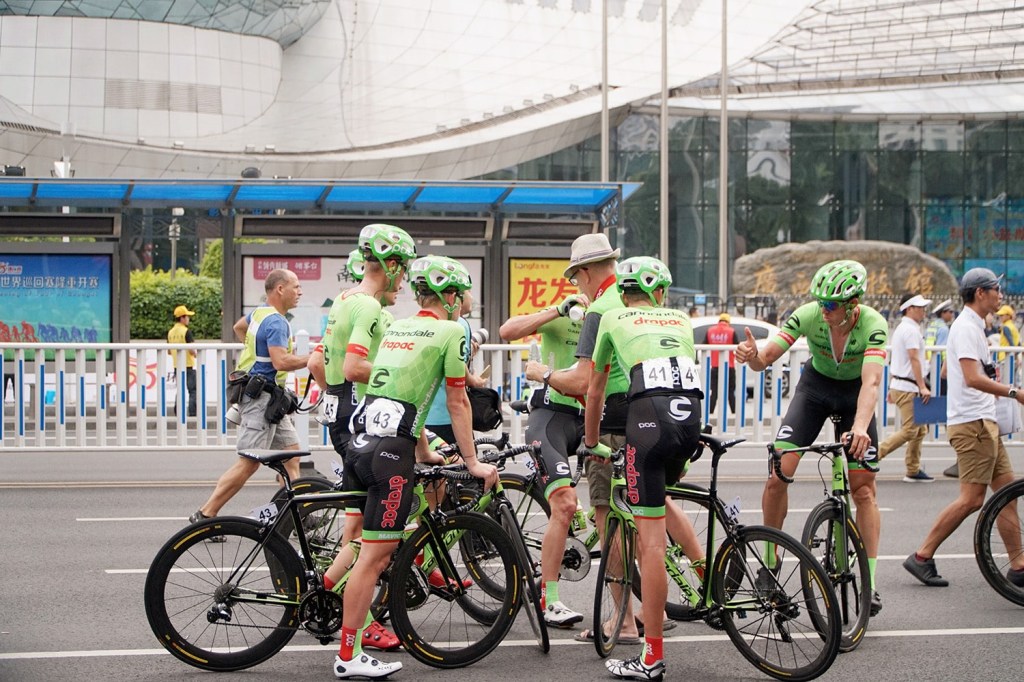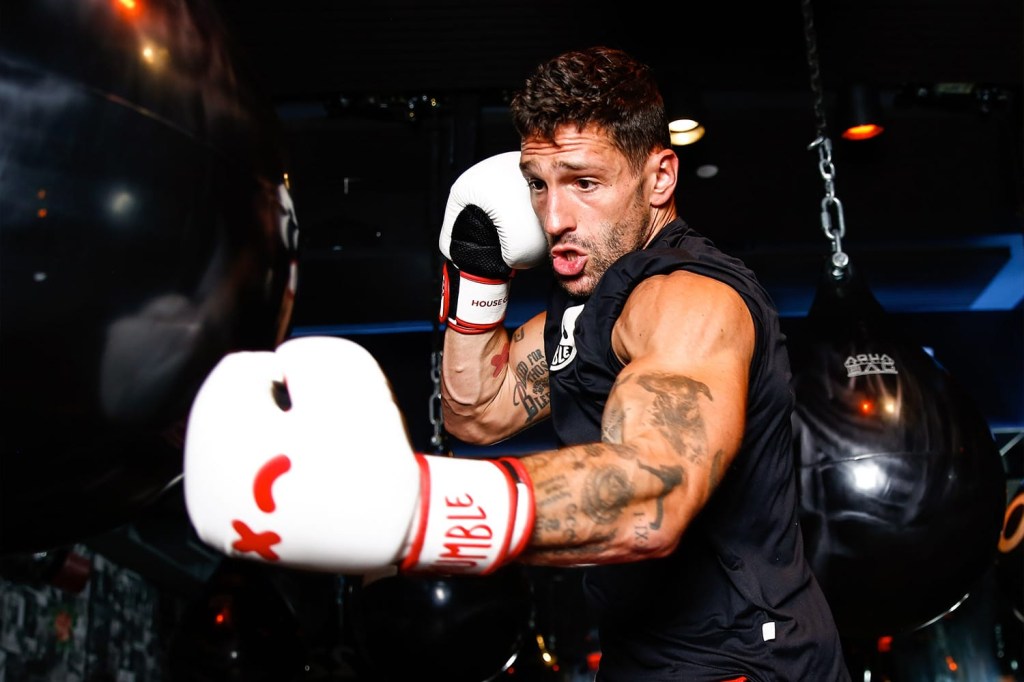The turmoil continues in the Miami Dolphins front office. Embattled owner Stephen Ross has reportedly changed his mind about long-term plans to hand over the team to vice chairman Bruce Beal. Instead, Ross will pass the reins to his daughter, Jennifer Ross.
|
|
|

Peloton CEO Barry McCarthy wrote in a letter to employees Friday that the interactive fitness company is “making the hard choices” that will lead to the elimination of 784 jobs, a major reduction of its retail locations, and price increases for its most-expensive products.
The changes detailed in the letter obtained by Front Office Sports were the most dramatic since McCarthy, a former Spotify CFO, replaced embattled CEO John Foley in February.
Peloton will raise the price of the Bike+ by $500 (now $2,495) and the Tread by $800 ($3,495).
After a meteoric rise early in the pandemic, Peloton lost nearly $757 million in the first three months of this year, and its valuation — once at about $45 billion — has dipped 90% in less than two years.
Bloomberg was the first outlet to report the letter.
Restructuring Gains Steam
The restructuring plan already included closing warehouse and retail locations as demand slowed from earlier in the pandemic.
- Peloton currently has 88 stores in the U.S. and Canada. The letter stated that the company “will reduce [its] retail presence across North America, although the closures may not occur this year.”
- The delivery of its interactive products, which had been handled by employees, will be outsourced, which will cut delivery costs in half. Peloton will also outsource its customer service teams.
- The company will eliminate its North American field operations warehouse, which will result in a “significant reduction in our delivery workforce teams.”
“Any decision we make that impacts team members is not taken lightly, but these moves enable Peloton to become more efficient, cost effective, and agile,” McCarthy wrote.
Editor’s note: For more on this story, click here.
|
|
|
|

NFL practice facilities are expensive to build — but for the Carolina Panthers, not building one is proving quite costly as well.
GT Real Estate, a company owned by Panthers owner David Tepper, submitted a plan in the U.S. Bankruptcy Court in Delaware to repay creditors and resolve all claims related to the team’s abandoned development in Rock Hill, South Carolina.
- The plan would have GT Real Estate put $60.5 million into a trust dedicated to paying back contractors, subcontractors, and creditors.
- The company would also pay $21.1 million to York County, which provided $21 million toward the project.
- DT Sports Holdings, another Tepper-owned entity, has already paid $20 million toward debts related to the project.
The repayment scheme must be approved by the court, and GT Real Estate anticipates the hearing will occur in October.
The $800 million design included the team’s headquarters, practice fields, a 5,000-capacity stadium, and indoor practice center. GT Real Estate, which invested $170 million in the project, filed for bankruptcy in June.
Double Trouble
Tepper Sports & Entertainment also backed out of a similar project for its MLS team, Charlotte FC.
Last month, the organization dropped plans to be part of a public-private partnership at Charlotte’s Eastland Mall where the company would build a training facility for the club, its academy, and its MLS Next Pro team across 20 acres.
|
|
|
|

The world’s second-largest economy has seen a major cycling boom as pandemic-related gym closures continue and people avoid crowds.
China’s cycling market is expected to reach $16.5 billion by 2026, according to Research and Markets. That’s a significant bump from last year, when the sport’s market was estimated to be between $12 billion to $15 billion.
Cycling brands globally are feeling the benefits of the estimated 20 million people participating in the sport across China.
- Compared to the same period last year, American bicycle brand Specialized reported 20% to 30% growth in its Beijing stores from March to June.
- He Dong, who oversees the Beijing franchised dealer of Specialized, says the growth would be double that number if it weren’t for a shortage of bike products. He added that for every model sold, at least 10 customers are waiting for their bike.
Feng Baozhong, vice president of the Chinese Cycling Association, expects cycling’s popularity to continue even after the pandemic, citing China’s growing affluence, the growth of the sports industry, and increased concerns about health.
“The pursuit of health will not vanish, so I think there is a good prospect for the sustainability (of cycling),” Feng said.
Around the World
Research and Markets projects the global bicycle market to reach $78 billion by 2026, up from $54.7 billion in 2020. The estimation is attributed to technological advancements, growing global health awareness, and rising fuel/energy prices, among other reasons.
The U.S. market was estimated at $9.5 billion in 2021.
|
|
|
|

Xponential Fitness — the owner of several fitness brands including Pure Barre, YogaSix, and Rumble — exceeded expectations in the company’s latest earnings report.
The largest boutique fitness franchiser in the U.S. with 2,357 studios, generated $59.6 million in revenue in Q2 — a 66% increase year-over-year — surpassing Wall Street estimates by 21%.
- Net income reached $31.5 million in Q2, compared to a net loss of $8 million.
- The company sold 251 franchise licenses and opened 128 new studios in Q2.
- As of June 30, it had $29.3 million of cash, cash equivalents, and restricted cash.
- The company reported $131.7 million in total long-term debt.
Xponential has accordingly raised its full-year revenue outlook, anticipating its current state of business to maintain its pace as it continues to expand its reach.
The California-based company projects full-year revenue to range between $211 million and $221 million, up from a previous guidance of between $201 million and $211 million.
Xponential expects to open a total of 500 to 520 new studios in 2022, up 53% compared to FY2021.
Going Public
In June 2021, Xponential filed for an initial public offering after a year-long delay caused by the pandemic. At the time, the company was seeking a valuation of roughly $1.3 billion.
A month later, Xponential went public raising $120 million in its IPO by selling 10 million shares for $12 apiece. The transaction also included a $200 million private placement by investors.
|
|
|
|
- The Atlanta Dream’s rebuild is bigger than basketball. The WNBA team’s new owners have made sweeping changes since taking over in 2021 — and the franchise is at the forefront of the league’s social justice initiatives.
- WWE is one of the best-performing sports companies trading on public markets this year. Its international expansion strategy and the return to live events have been keys to its success.
- Tomorrow on The C-Suite, Front Office Sports’ Chief Content Officer Lisa Granatstein sits down with Jessica Berman, NWSL Commissioner, for an inside look at how she’s changing the game for women’s soccer. Tune in at 2 p.m. ET for a behind-the-scenes look.*
*Sponsored Content
|
|
|
|
*All times are EST unless otherwise noted.
*Odds/lines subject to change. T&Cs apply. See draftkings.com/sportsbook for details. |
|
|
Do you participate in any fantasy sports leagues?
|
|
Friday’s Answer
48% of respondents drink soda at least once a week.
|
|
|








